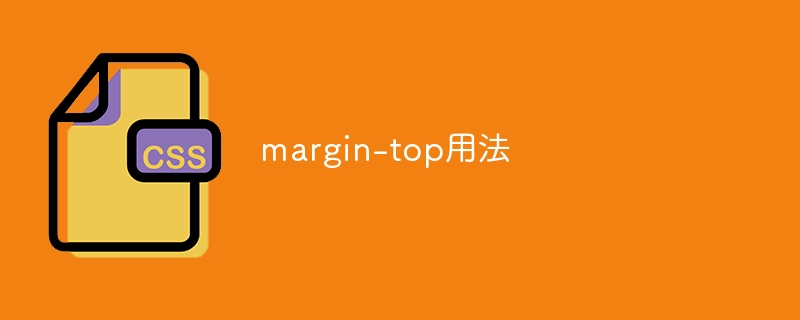

Margin-top usage, specific code examples are required
In CSS, margin-top is a property used to set the top margin of an element. It controls the distance between an element and the element above it, or the distance between an element and the top of its containing block.
The syntax of margin-top is as follows:
selector {
margin-top: value;
}Among them, selector represents the element or element combination to be set, and value represents the margin value to be applied.
The following are some common margin-top usages and their code examples:
h1 {
margin-top: 20px;
}
div {
margin-top: 30px;
}The above code will make Create a 20 pixel distance between the top of all h1 elements and the element above them, and a 30 pixel distance between the top of all div elements and the elements above them.
img {
margin-top: 10%;
}The above code will create a distance of 10% of the height of its parent element between the top of all img elements and the element above it .
p {
margin-top: -10px;
}The above code will cause all p elements to overlap with the elements above them, creating a 10-pixel gap between the top and the elements above them. Overlay effect.
div {
margin-top: auto;
}The above code will automatically calculate the distance between all div elements in the vertical direction and the elements above them, so that it can be achieved Vertically centered effect.
.child {
margin-top: inherit;
}The above code will cause all elements with class child to inherit the margin-top value of their parent element.
Summary:
margin-top is a CSS property used to control the distance between an element and the element above it. Through specific code examples, we can see the flexible usage of margin-top, which can use fixed values, percentages, negative values, auto and inherit to set the distance from the upper elements. Mastering the use of margin-top can better layout and position elements, improving the readability and aesthetics of the page.
The above is the detailed content of margin-top usage. For more information, please follow other related articles on the PHP Chinese website!
 How to vertically center div text
How to vertically center div text
 What is the function of frequency divider
What is the function of frequency divider
 How to switch between full-width and half-width
How to switch between full-width and half-width
 How to take screenshots on Huawei mate60pro
How to take screenshots on Huawei mate60pro
 How to set up computer virtual memory
How to set up computer virtual memory
 Window switching shortcut keys
Window switching shortcut keys
 User Account Control Cancellation Method
User Account Control Cancellation Method
 Is A5 bigger or B5 paper bigger?
Is A5 bigger or B5 paper bigger?




